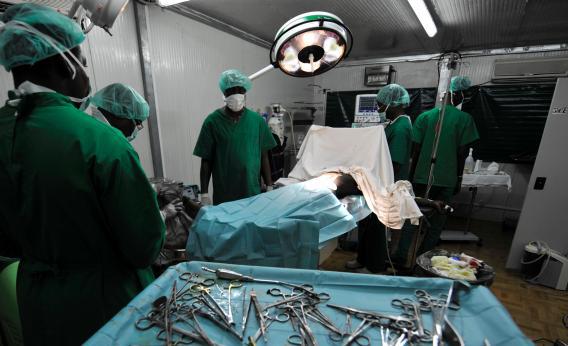Jaime Rosenthal, a student at Washington University in Saint Louis, came up with the interesting summer research project of phoning up 102 different hospitals across this great land of ours and asking what a hip replacement surgery would cost. The answer is that it turns out to be all over the map, with quoted prices ranging from $11,000 to $125,000.
As Sarah Kliff explains, this phenomenon is not unique to hip surgeries—a lack of price transparency is endemic to the health care industry.
I often hear this discussed by health care wonks as driven by unique attributes of the health care industry, and obviously there’s something to that. But nontransparent pricing is a fairly common feature of economic life outside the realm of standardized commodities traded in highly competitive markets. Look at the range of different prices residents of any given city are paying for identical cable television packages at any given time. Or look at airline pricing, where all kinds of crazy stuff happens. Connecting flights are sometimes cheaper than direct ones despite higher costs, how many days you stay is often a factor, one-way and round-trip price differentials are wacky, nobody understands the alchemy behind when you can redeem frequent flier miles, etc.
Or perhaps the most directly relevant comparison would be hotels, since hospitals and hotels feature the same basic dynamic that an empty room is pure waste. Hotel revenue management is a very complicated issue that you can study at Cornell or hire consultants for and is undertaken with the assistance of complicated computer models. A small, charming B&B may have a pricing scheme that’s as simple as a two-by-two grid assessing whether it’s a weekend or a weekday and whether it’s peak or off-peak season. But a sophisticated hospitality firm is going to have a pricing formula that’s extremely hard to summarize, and there’s no reason to expect hospitals to be any different from hotels in this regard.
One particularly relevant practice may be this. The federal government, to contain travel costs, caps permissable spending on hotel rooms for federally funded travel. One consequence of that, obviously, is to lock federal travelers out of certain luxury hotels. But another consequence is that since the federal government is such a large employer, many hotels offer a special discount to federal travelers in order to bring their price below the federal cap. In general, the hotel is looking to exploit third-party payment agency problems to milk business travelers for all they’re worth. But in the particular case of federal travel, they’re essentially giving a volume discount. Other large employers may be able to achieve something similar either by negotiating special deals for themselves or by working through special travel agencies. Either way, the result is that to look at major hotel operators in the United States and ask, “What does it cost to spend a night in your hotel?” is going to get you a very complicated answer. It depends which city you want to stay in. It depends what time of year. It depends how many days you want to stay. It depends when you book. It depends who’s paying. So it should come as no surprise that hospital prices also vary. What Medicare might pay versus what you might pay out of pocket versus what an insurance company might pay is going to depend. What it costs in Miami won’t be what it costs in Montana.
